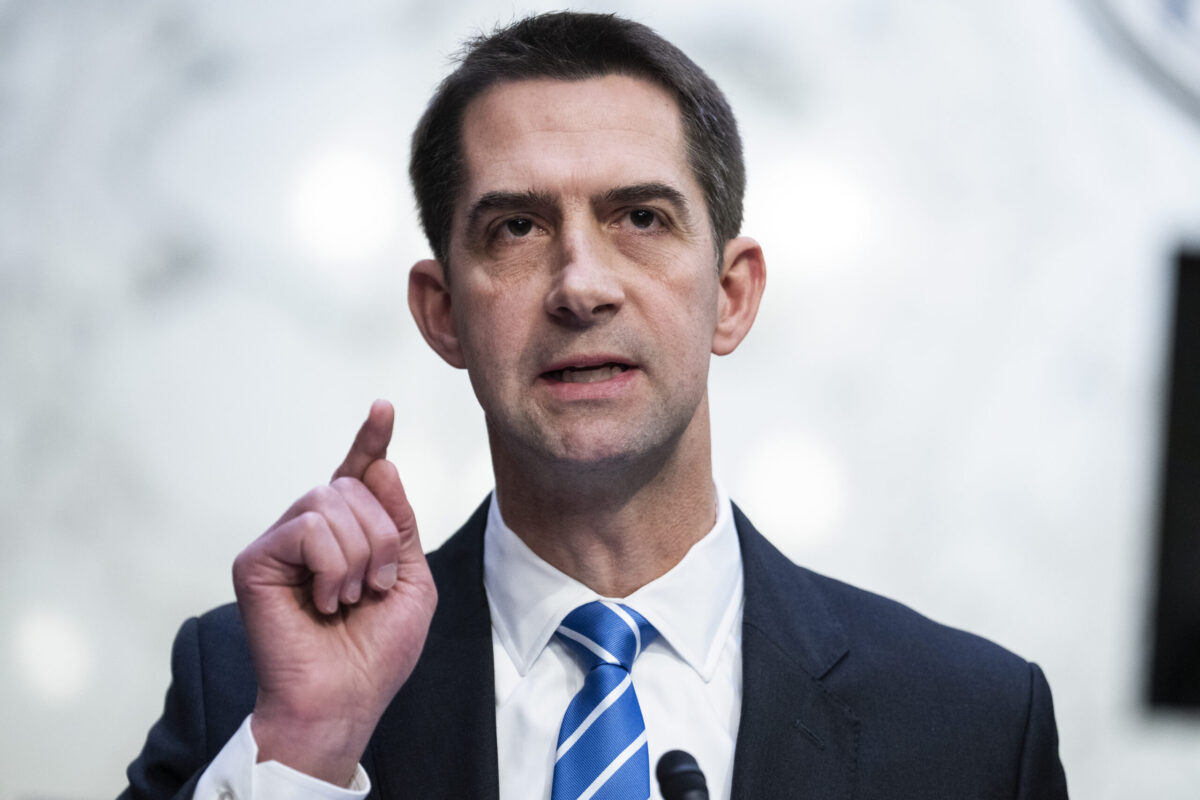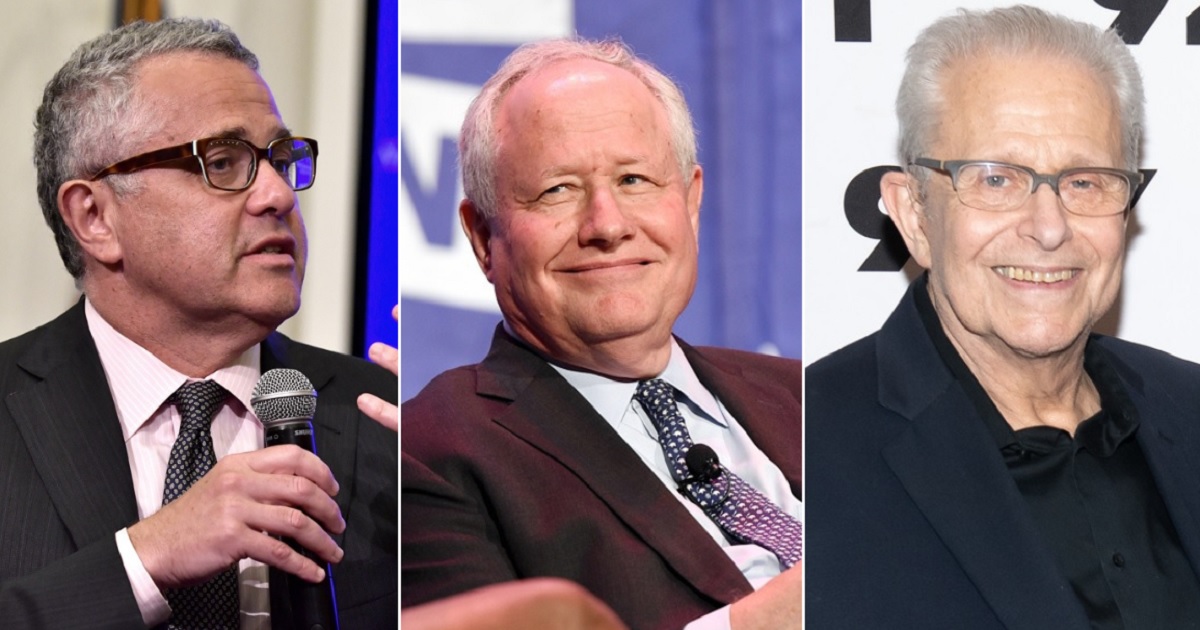Why The Special Counsel Needs To Fight For More Spygate Documents, Stat

Special Counsel John Durham’s prosecution of Igor Danchenko, the Russian national who served as Christopher Steele’s primary sub-source, will soon heat up—maybe as early as next week, if prosecutors are wise and return to the grand jury to obtain the documents the Hillary Clinton campaign wrongfully withheld based on attorney-client privilege. Those documents will likely reveal Fusion GPS peddled Danchenko’s lies directly to reporters.
The jury’s acquittal of former Clinton campaign attorney Michael Sussmann after less than a day of deliberations represented a setback to Durham’s three-year investigation of the Russia collusion hoax. Americans nonetheless learned much from the prosecution, including that Hillary Clinton held personal responsibility for the peddling of the Alfa Bank conspiracy theory and that, post-Donald Trump, the FBI and legacy media remain corrupt.
The special counsel team also learned a valuable lesson from the court’s rulings on the admissibility of documents withheld from the grand jury based on the Clinton campaign’s assertion of attorney-client privilege: Don’t wait until trial to challenge the improperly withheld documents.
Given the breakneck speed of the Sussmann prosecution, it is to be expected that, following Tuesday’s acquittal, the special counsel team regroups for a few days. But by Monday, their focus should turn to their prosecution of Danchenko.
Background on the Danchenko Case
In November 2021, the special counsel indicted Danchenko on five counts, charging him “with lying to the FBI during the agents’ questioning of him related to his role as Christopher Steele’s ‘Primary Sub-Source’ for the notorious dossier that enabled Obama administration surveillance of the Trump campaign.”
Over 39 pages, the speaking indictment revealed how Danchenko first met Steele in 2010. He was introduced to the former MI6 spy by Steele’s longtime friend, Fiona Hill, who knew Danchenko from their work at the Brookings Institute. Since then, Steele’s London-based firm, Orbis Business Intelligence, hired Danchenko for contract work related to Russia research.
In 2016, the Clinton campaign, through its law firm Perkins Coie, hired the U.S.-based research firm Fusion GPS. In turn, Fusion GPS hired Orbis and Steele to investigate the Trump campaign and any connections to Russia. Steele then contacted Danchenko, a Russian national, eventually relying heavily on Danchenko’s supposed “intel” in crafting the numerous memorandum that later became known as the Steele dossier, and referring to Danchenko throughout as “Primary Sub-Source 1.”
A Tissue of Lies
Danchenko, according to the special counsel’s indictment, lied extensively when providing Steele his supposed intel. The indictment also says one of Danchenko’s “sources,” Charles Dolan, Jr., who has long-time connections to the Clintons and the Democrat Party, lied to Danchenko.
Dolan was named in the indictment merely as “PR Executive-1.” According to the indictment, Dolan lied to Danchenko when he told Danchenko a “GOP friend” had told him that Paul Manafort had been forced to resign from the Trump campaign because of allegations connecting Manafort to Ukraine. While Dolan later admitted to the FBI that he had no such “GOP friend” and that he had instead gleaned this information from press reports, Dolan’s fabrication appeared in the Steele dossier thanks to Danchenko’s lies.
Yet when the FBI questioned Danchenko on June 15, 2017, according to the indictment, Danchenko “denied to agents of the FBI that he had spoken with [Dolan] about any material contained in the [Steele dossier].” That lie formed Count I of the special counsel’s charges against Danchenko.
The remaining four counts of the indictment concerned Danchenko’s alleged lies about his supposed conversation with the then-Russian Chamber of Commerce President Sergei Millian. According to the indictment, Danchenko told FBI agents on multiple occasions—thus the four counts—that he believed Millian had provided him information during an anonymous phone call, including the “intel,” later included in the Steele dossier, that there was “a well-developed ‘conspiracy of cooperation’ between the Trump Campaign and Russian officials.”
But Danchenko never spoke with Millian and Millian was not a source for Danchenko nor the Steele dossier, as Millian has long maintained. Millian will not comment further, telling The Federalist that Durham’s team requested he “not talk to the press about details of the investigation.”
Get Those Subpoenas Enforced
Some of those details will likely be made public, however, when pre-trial filings begin to hit the docket in the case against Danchenko. With the October 11, 2022, trial date only about four months away, one could anticipate various filings to flow in soon. But following the court’s ruling in United States v. Sussmann that the special counsel waited too long to challenge documents withheld from the grand jury based on the Clinton campaign’s assertion of attorney-client privilege, Durham’s team should move next week to enforce any subpoenas.
In the Sussmann case, on April 6, 2022, the special counsel filed a Motion to Compel documents withheld from the grand jury to be produced to the court in camera. On May 4, 2022, presiding judge Christopher Cooper ordered Fusion GPS to provide the court 38 documents sought by the special counsel’s office to allow the court to determine whether they were protected by attorney-client privilege. Then, on May 12, 2022, the court ruled that emails between Fusion GPS and the press “as part of an affirmative media relations effort by the Clinton Campaign” were not privileged and must be provided to prosecutors.
The court, however, further ruled that because the special counsel waited “until April 6, 2022, just over a month before trial was set to begin,” to challenge the privilege, “allowing the Special Counsel to use these documents at trial would prejudice Mr. Sussmann’s defense.” Accordingly, while the special counsel’s office obtained access to the documents, they could not use those documents during the prosecution of Sussmann.
To ensure prosecutors both have access to all material documents and the ability to use any relevant documents during the Danchenko trial, the special counsel’s office should move quickly to obtain any material previously withheld by Fusion GPS under the auspices of attorney-client privilege. In total, as the court explained in the Sussmann case, Fusion GPS withheld “approximately 1500 documents” from the grand jury, but the judge only considered privilege for 38 documents prosecutors sought access to in its case against the former Clinton campaign manager.
What’s Inside Those Documents
The details contained in Danchenko’s indictment, coupled with the content of various emails between Fusion GPS and reporters, suggest some of the 1,500 documents withheld will concern Danchenko’s supposed intel, even though Danchenko was one step removed from Fusion GPS, having been brought into the Russia collusion smear project by Steele.
The indictment, for instance, notes that on “July 28, 2016, Danchenko sent a message to an acquaintance” stating, “Thanks to my reporting in the past 36 hours, Steele and Steele’s assistant are flying in tomorrow for a few days so I might be busy.” That same day the FBI’s New York Field Office received two of Steele’s election reports.
July 28, 2016, is also the date the FBI received the “tip” from the Australian diplomat that George Papadopoulos “had received some kind of suggestion from Russia that it could assist . . . with the anonymous release of information during the campaign that would be damaging to [Hillary] Clinton.” That “tip” purportedly formed the basis for opening Crossfire Hurricane.
Massaging the Media
That July 28, 2016 message from Danchenko proves significant in context of the flurry of emails from Fusion GPS’s co-founders, Glenn Simpson and Peter Fritsch, to reporters that were made public during the Sussmann prosecution. During this same timeframe, Simpson and Fritsch were peddling to the media claims that Millian and Carter Page were part of the supposed Trump-Russia collusion. As with Millian, Danchenko had fabricated supposed intel about Page, providing it to Steele. Steele included it in the dossier, which he then handed off to the FBI.
For instance, on July 24, 2016, Simpson emailed the Washington Post’s Tom Hamburger with the subject line “millian,” providing Hamburger two email addresses for Millian. The next day, Mark Hosenball from Reuters emailed Simpson, asking him to “please remember to send me stuff on Sergei the Millian-aire.” Hosenball also asked Simpson for any “stuff on the Carter Page guy, including his most recent Russian excursions.”
On July 26, 2016, an email thread between Fritsch and Jay Solomon from the Wall Street Journal shows Fritsch saying, off the record, that an “easy scoop waiting for confirmation: that dude carter page met with igor sechin when he went to moscow earlier this month.” Fritsch also told Solomon that Page “met with a senior kremlin official called divyekin, who told page they have good kompromat on hillary and offered to help. He also warned page they have good kompromat on the donald.”
Fusion GPS also pushed Millian as a Russian stooge to ABC News’ Matthew Mosk in an email thread from July 28, 2016. Yet another email thread, between Simpson and the Washington Post’s Hamburger dated July 29, 2016, also confirms that Fusion GPS pushed the fiction that Page met with Sechin and Ivanov in Russia to the Post reporter. Hamburger told Simpson that he had checked with one of their Moscow sources, who called the claim of a meeting “bullshit” and “impossible.”
Feeding Fabrications to the FBI
The Danchenko indictment includes a second allegation that proves key when read with Fusion GPS’s emails to the media. According to the indictment, on September 18, 2016, Danchenko sent another message to the same acquaintance, stating that he had “work to do for Steele who’s probably coming to DC on Wednesday.” The indictment further noted that Steele then traveled to Washington D.C. on September 21, 2016.
While in D.C. on September 21, 2016, “at the direction of Fusion GPS, Christopher Steele brief[ed] the N.Y. Times, Washington Post, New Yorker, Yahoo! News, and CNN.” According to a Yahoo! News reporter present at that briefing, “Steele told him at the meeting that he had provided his election reporting to the FBI and that there were ‘people in the [FBI] taking this very seriously.”
The day after Danchenko mentioned the work he had to do for Steele, Fusion GPS’s Jake Berkowitz sent his boss Simpson and Mosk an email further painting Millian as a Russian asset. A thread between The New York Times’ Eric Lichtblau and Fritsch dating from September 24 and September 27, 2016 likewise focused on Millian, with Fusion GPS providing the Times reporter Millian’s IP address and screengrabs indicating it was registered in Moscow.
The timing and content of these emails suggest Danchenko’s lies went from Steele to Fusion GPS and then straight to the media. What the emails don’t disclose, however, are the conversations between Steele and Fusion GPS, internally at Fusion GPS, and between Fusion GPS and Marc Elias of Perkins Coie.
Some of the approximate 1,500 emails Fusion GPS withheld from the special counsel likely include discussions of the “intel” Steele obtained from Danchenko. It is well past time for Durham to fight for those documents.
Margot Cleveland is The Federalist’s senior legal correspondent. She is also a contributor to National Review Online, the Washington Examiner, Aleteia, and Townhall.com, and has been published in the Wall Street Journal and USA Today.
Cleveland is a lawyer and a graduate of the Notre Dame Law School, where she earned the Hoynes Prize—the law school’s highest honor. She later served for nearly 25 years as a permanent law clerk for a federal appellate judge on the Seventh Circuit Court of Appeals. Cleveland is a former full-time university faculty member and now teaches as an adjunct from time to time.
As a stay-at-home homeschooling mom of a young son with cystic fibrosis, Cleveland frequently writes on cultural issues related to parenting and special-needs children. Cleveland is on Twitter at @ProfMJCleveland. The views expressed here are those of Cleveland in her private capacity.
" Conservative News Daily does not always share or support the views and opinions expressed here; they are just those of the writer."




